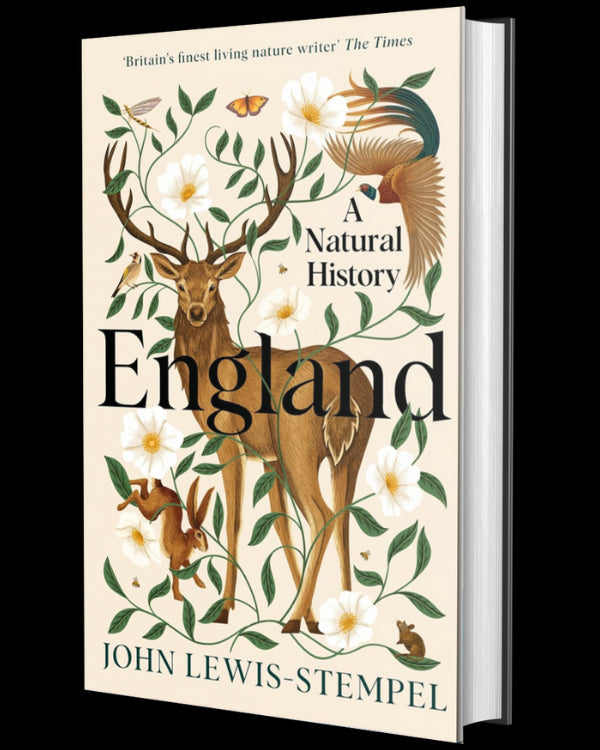Goldsboro Books
9780857526472England: A Definitive Natural History of England
England: A Definitive Natural History of England
Publisher Doubleday
Genre: Non-Fiction
Publication date:
Available from:
- Signed by the author
- Hardback
- UK First Edition, First Printing
Out of stock
Couldn't load pickup availability
Limited Edition Copies
View full details
-
Professionally Packed
All of our books that have a dust wrapper are covered in clear protective, removable film and are packed professionally in bubble wrap and a box for shipping so that they reach you in perfect condition.
-
Book Condition & Notes
About the book
‘John Lewis-Stempel is the hottest nature writer around.’ – Spectator
‘His immense, patient powers of observation – along with a flair for the anthropomorphic – mean he is able to offer a portrait of animal life that's rare in its colour and drama.’ – Observer
‘That John Lewis-Stempel is one of the best nature writers of his generation is undisputed.’ – Country Life
‘I love the earthiness of John Lewis-Stempel's writing … The author has seen it, done it, sweated it, and has earned the right to write about it with straw-cut fingers and itchy palms. Brilliant stuff.’ – Christopher Somerville, walking correspondent for The Times
‘It’s his observation of the natural world – the sight, the sound, the smell of it – that is so memorable. He has a distinctively brisk, muscular style of writing that has a poetic intensity and concision. – Guardian
‘Lewis-Stempel sees and hears things others will never see and hear, and he can write about them as no one else can.’– Daily Mail
-----
Our countryside is iconic: a series of distinctive habitats that unite to create a landscape that is unique for the rich diversity of our flora and fauna. In England, his most magisterial book to date, John Lewis-Stempel explores each in turn, taking us from coast to moor, from downs to field, from the park to the village to create a vivid living portrait of our natural history.
In his trademark lyrical prose, Lewis-Stempel reveals the hidden workings of each habitat: the clear waters and dragonflies; the bluebells, badgers and stag beetles; wild thyme; granite cliffs; rock pools and sandy beaches; red deer standing at ancient oaks; the wayside flowers of the lane; hedgehogs and hares; and snow on the high peak. Each landscape - be it calm green or wild moor, plunging cliff or flatland fen - has shaped our idea of ourselves, our sense of what it is to be in England.
In a stunning package, complete with decorated boards, endpapers, chapterheads and a map, England: A Natural History is the definitive volume on the English landscape and the capstone of John Lewis-Stempel's nature writing.
Collapsible content
About the Author
John Lewis-Stempel
Collapsible content
GPSR EU Safety Information
1. Manufacturer Contact Information
Goldsboro Books Ltd - 23-27 Cecil Court, London, WC2N4EZ, enquiries@goldsborobooks.com, 02074979230
2. EU Authorised Representative Information
Easy Access System Europe - Mustamäe tee 50, 10621 Tallinn, Estonia, gpsr.requests@easproject.com
3. Safety Warnings
Not applicable







